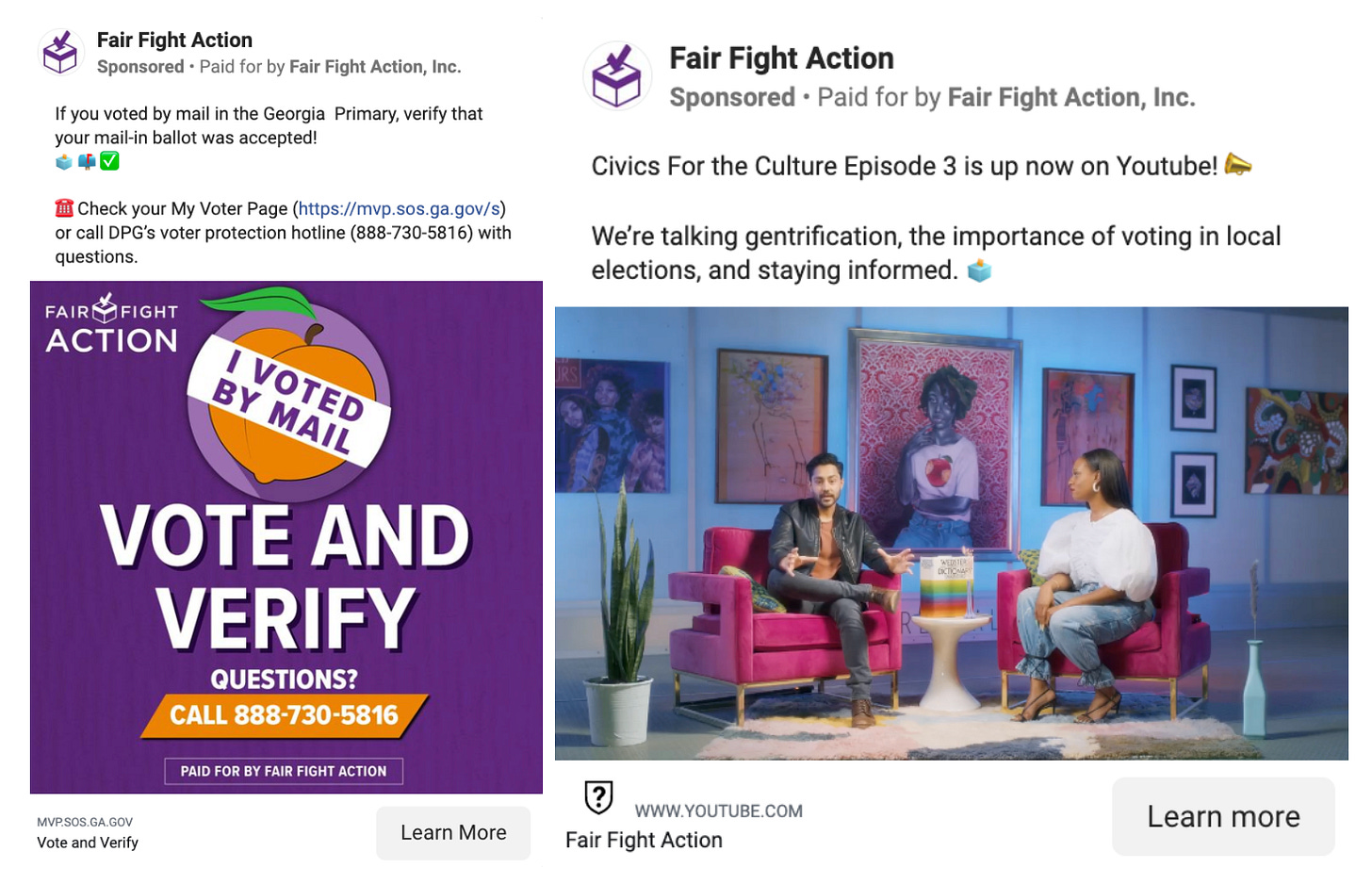Deep in the heart of primary season
A look at the digital dogfight for a Texas Congressional district and much, much more
The first half of this week was dominated by political chatter about primary elections from Pennsylvania to Oregon. Next week that drama will continue, with closely-watched races on Tuesday in Georgia, Alabama, Arkansas, and Texas.
For this week’s deep dive, we’ll zero in on one of the most competitive races in that lineup: the runoff election in Texas’ 28th between a conservative Democratic incumbent and his progressive challenger. How are voters engaging with the candidates on social media? Which online platforms are the campaigns and outside groups using to get out the vote? We’ll break that down + more. But first…
A programming note: There will be no FWIW next Friday, as we take a long weekend for Memorial Day. Follow us on Twitter @FWIWnews for updates, bonus content, and data throughout the week though!
By the numbers
FWIW, here were the top-spending political advertisers on Meta platforms (Facebook + Instagram) last week:
Planned Parenthood and Planned Parenthood Action Fund were once again the top political advertisers on Meta’s platforms last week, dropping a combined $1.1 million on ads underlining the importance of abortion access. They were joined by Women’s March, which spent six figures on Facebook ads promoting the May 14th ‘Bans Off Our Bodies’ events.
Another top spender nationwide was Stacey Abrams-affiliated civic engagement nonprofit Fair Fight Action. The organization is running voter information ads across Georgia ahead of next Tuesday’s primary elections and promoting a new web series called ‘Civics for the Culture.’
Meanwhile, here were the top political advertisers on Google platforms last week, including YouTube:
Billionaire Rick Caruso, running for mayor of Los Angeles, was the top-spending political advertiser on Google platforms last week. His campaign has spent over $1.5 million on Google and YouTube ads since February, which is about $1.5 million more than his leading opponents, Karen Bass and Kevin De Leon. 👀 Caruso’s ads primarily focus on crime, homelessness, and helping underserved communities.
Lastly, here are the top political ad spenders on Snapchat so far this year:
From around the internet
The Department of Homeland Security created a “Disinformation Governance Board” to coordinate countering misinformation related to homeland security. According to the Washington Post’s Taylor Lorenz, it fell victim to misinformation within weeks.
The New York Times’ Shane Goldmacher detailed the sneaky ways that Super PACs and candidates on both sides of the aisle are skirting FEC coordination rules using little red boxes on their websites.
Sheetz aficionado John Fetterman swept Tuesday’s Democratic primary for U.S. Senate in Pennsylvania, besting moderate U.S. Rep. Conor Lamb. McClatchy’s Dave Catanese has a look at why Lamb’s campaign never took off. Like we told Dave, “It’s 2022, and ‘electability’ means getting the basics right when it comes to online fundraising, persuasion, and grassroots engagement. Lamb’s campaign chose to go a different route.”
Progressive tech group Higher Ground Labs released their latest Political Tech Landscape report, detailing the companies and apps that make up the Democrats’ campaign technology ecosystem. Give it a read here.
Cuellar vs. Cisneros redux
On Tuesday night, the eyes of many political watchers on the Left will be focused on south Texas, where progressive Jessica Cisneros will once again attempt to topple conservative Democratic Rep. Henry Cuellar in the state’s 28th congressional district. The Justice Democrats-backed Cisneros has been perpetually running against Cuellar since 2019, narrowly lost a runoff in 2020, and again forced a runoff in the most recent primary election two months ago. If she wins on Tuesday, it will be due in no small part to the coalition of national progressive leaders in her corner, and if Cuellar comes out on top, we expect plenty of blame to be laid on corporate PACs, “establishment Dems,” and dark-money groups. For our part, we looked at how the race has played out in several key places online: in digital ads, organic social media engagement, and Google search interest. Here’s what we found:









